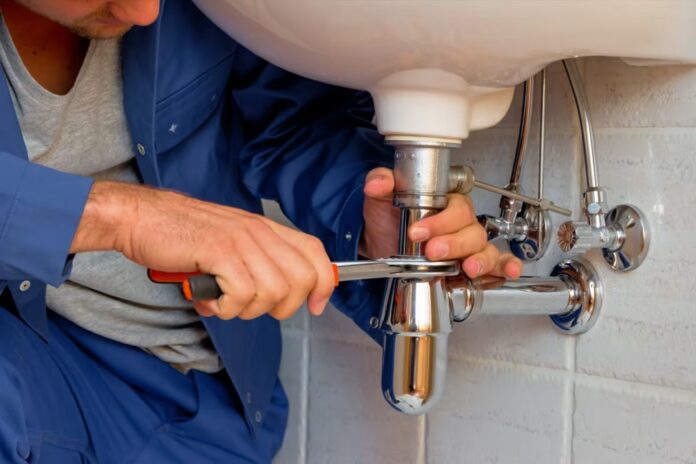Plumbing is a cornerstone of every functional home, ensuring a clean water supply and effective waste removal. This guide provides essential tips and insights into managing and maintaining your home plumbing system to keep your household running smoothly and efficiently.
Understanding Your Home Plumbing System
A home plumbing system comprises interconnected networks of pipes, fixtures, and appliances designed for water distribution and wastewater removal. Howrah Plumbing provides expert services for maintaining and repairing plumbing systems in homes, ensuring reliable functionality and efficiency. Familiarizing yourself with its components can empower you to detect and address issues proactively:
- Water Supply System: Responsible for delivering potable water from either a municipal source or private well to faucets, showers, toilets, and appliances throughout your home.
- Drain-Waste-Vent (DWV) System: Facilitates the safe disposal of wastewater and sewage while venting harmful gases outdoors, usually through the roof.
- Fixtures and Appliances: Include sinks, toilets, showers, dishwashers, and washing machines, all reliant on the plumbing system for proper functionality.
Common Plumbing Challenges and Solutions
Homeowners frequently encounter plumbing issues that, if left unattended, can escalate into more significant problems. Recognizing these common issues and their remedies can help maintain the integrity of your plumbing system:
- Leaky Faucets: Often caused by worn-out washers or seals. Replacing these components typically resolves the leak.
- Clogged Drains: Hair, soap residue, grease, and food particles can obstruct drains. Utilizing a plunger, drain snake, or professional drain cleaning services effectively clears most blockages.
- Running Toilets: A malfunctioning flapper or fill valve is often to blame. Replacing these parts can restore proper toilet function.
- Low Water Pressure: Resulting from mineral deposits or sediment buildup within pipes or fixtures. Cleaning or replacing aerators can enhance water flow.
Preventive Maintenance Tips
Regular maintenance plays a crucial role in preventing plumbing issues and extending the lifespan of your system:
- Leak Inspections: Routinely check under sinks and around appliances for signs of water leaks, addressing them promptly to prevent water damage.
- Drain Care: Maintain clear drains by periodically using a mixture of baking soda, vinegar, and hot water to dissolve buildup.
- Water Pressure Checks: Ensure water pressure remains within the optimal range (40-60 psi) to prevent stress on pipes and fixtures.
- Water Heater Care: Flushing your water heater annually eliminates sediment buildup, improving its efficiency and prolonging its lifespan.
When to Seek Professional Assistance
While some plumbing tasks are manageable as DIY projects, certain issues necessitate the expertise of a professional plumber:
- Persistent Leaks: If you cannot locate or resolve a leak, professional intervention can prevent further damage.
- Sewer Line Concerns: Signs such as multiple drain clogs, sewage odors, or water backups indicate potential sewer line issues requiring professional inspection and repair.
- Water Heater Problems: Issues like insufficient hot water, unusual noises, or visible leaks around the water heater necessitate prompt professional attention.
Eco-Friendly Plumbing Solutions
Adopting eco-friendly practices not only conserves water but also reduces utility costs and environmental impact:
- Low-Flow Fixtures: Install water-saving faucets, showerheads, and toilets to minimize water consumption without sacrificing performance.
- Energy-Efficient Appliances: Opt for ENERGY STAR-certified dishwashers and washing machines that use less water and energy.
- Rainwater Harvesting: Collect rainwater for non-potable uses like irrigation, reducing reliance on municipal water supplies.
- Greywater Systems: Recycle wastewater from sinks, showers, and washing machines for tasks such as toilet flushing or outdoor watering.
Conclusion
Maintaining a well-functioning plumbing system is essential for the comfort and safety of your home. You can ensure your plumbing operates efficiently if you follow the steps above. Additionally, embracing eco-friendly plumbing practices can help conserve water resources and reduce your household’s environmental footprint. With proper care and attention, you can enjoy a reliable plumbing system that enhances your living environment and saves you from costly repairs in the long run. Enhance Your Home with Top Plumbing Maintenance Tips and Innovations from https://fergusonsplumbingreviews.com.au/


